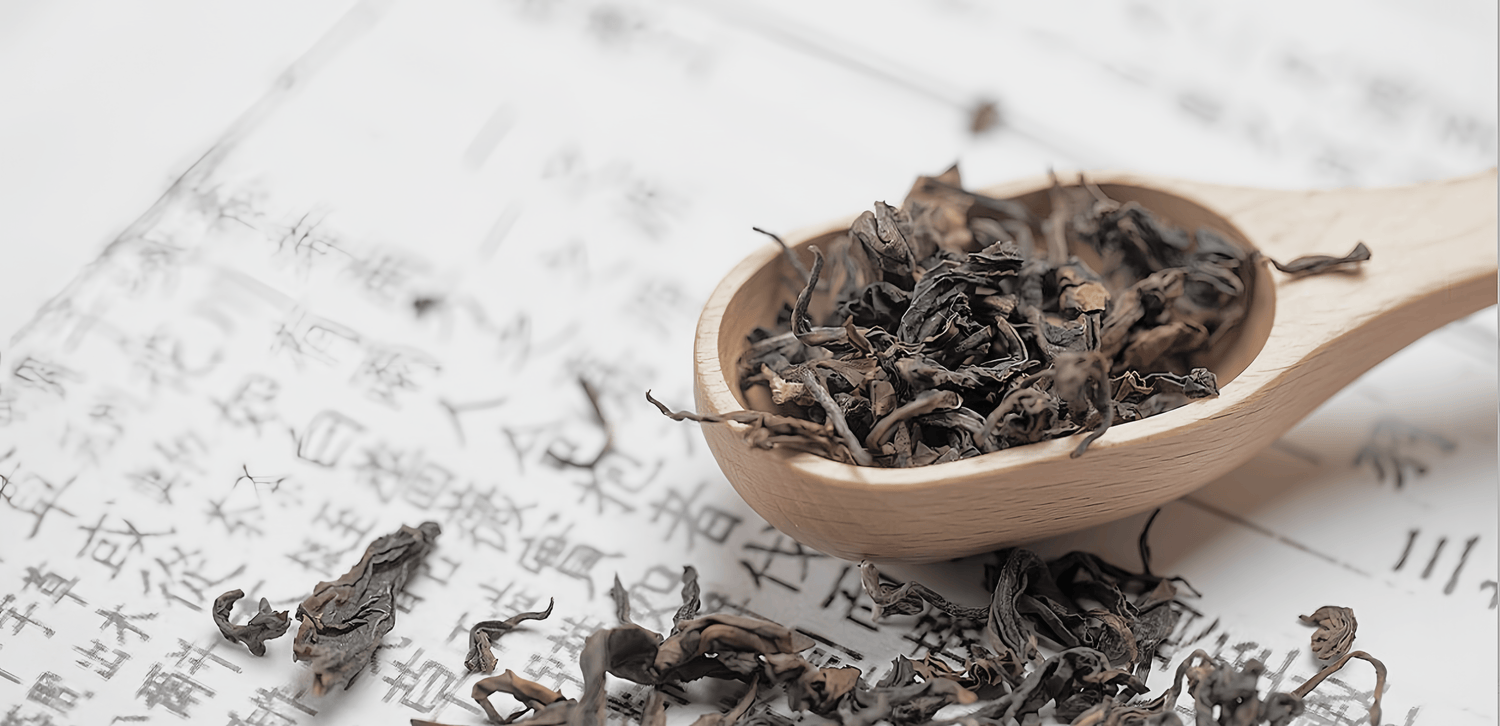Tea ranks as one of the three most consumed beverages worldwide and is celebrated as the beverage of the 21st century. This acclaim is not only due to its rich cultural heritage but also because tea is a natural drink with significant nutritional and health benefits. Among the essential components that define the flavor of tea—tea polyphenols, amino acids, and caffeine—polyphenols play a crucial role in the relationship between tea and health.
Through this article, you will gain a comprehensive understanding of tea polyphenols. We'll explore their diverse roles, from enhancing the unique flavors of your favorite brews to offering a myriad of health benefits that can significantly impact your well-being. Join us as we delve into the fascinating world of tea polyphenols, uncovering how they contribute not only to the allure of tea but also to its potent health-promoting properties.
Content
- What is tea polyphenol
- What is the level of tea polyphenol content in tea leaves
- What benefits do tea polyphenols have for overall health?
- What diseases do tea polyphenols work against?
What is tea polyphenol?
English Name: Tea Polyphenols
Definition: A general term for polyphenolic compounds in tea leaves
Includes: Catechins, flavonoids, flavones, flavonols, and phenolic acids
Significant Content: Catechins (a type of flavan-3-ols), accounting for approximately 70% of the total tea polyphenol content
Characteristics: It is one of the main components that contribute to the color, aroma, and taste of tea leaves, and also one of the major bioactive components with health benefits in tea.
What is the level of tea polyphenol content in tea leaves?
Not all teas have the same content of tea polyphenols. The deeper the fermentation of the tea leaves, the more polyphenols are transformed into other substances, resulting in a corresponding decrease in polyphenol content.
Green tea, which is unfermented, boasts a rich concentration of polyphenols. Studies have shown that the polyphenol content in green tea is 144% higher than that of black tea of the same quality and about 59% higher than that of oolong tea of comparable quality.
In addition to the type of tea, the quality of the tea leaves also affects the amount of polyphenols they contain.
For example, younger tea leaves tend to be of higher quality. These tender leaves grow at the top and are closest to the sunlight, allowing them to perform photosynthesis more effectively and synthesize a greater amount of phenolic substances. This results in a higher concentration of beneficial polyphenols in the tea brewed from these leaves.
What benefits do tea polyphenols have for overall health?
Anti-ageing
Tea polyphenols have strong antioxidant and physiological activities, acting as scavengers of free radicals in the human body. They can inhibit lipoxygenase and lipid peroxidation in skin mitochondria, thereby exerting anti-aging effects.
Research has shown that 1 milligram of tea polyphenols has an efficacy equivalent to approximately 9 micrograms of superoxide dismutase (SOD), which is a powerful enzyme that eliminates harmful excess free radicals in the human body. This efficacy is significantly higher than that of other similar substances.
Tea polyphenols exhibit antioxidant activity that is 18 times stronger than vitamin E and have synergistic effects with vitamin C and E.
Relief of Allergies
Tea polyphenols have a strong inhibitory effect on histamine release. Experimental evidence has shown that tea polyphenols exhibit 2 to 10 times stronger inhibitory effects on allergic reactions and skin allergies compared to commonly used antiallergic drugs.
Detoxification
Tea polyphenols have a strong adsorption effect on heavy metals. They can form complexes with heavy metals, leading to precipitation, which helps reduce the toxic effects of heavy metals on the human body.
Additionally, tea polyphenols have the ability to improve liver function and promote diuresis, making them effective in countering the toxicity of alkaloids.
Digestive Aid
The presence of caffeine in tea polyphenols can increase the secretion of gastric juice, aiding in digestion and enhancing the breakdown of fats. This is why the saying "long meals make one lean" holds true in this context.
Radiation Protection
Tea polyphenols and their oxidation products exhibit excellent radiation-protective properties. They can absorb radioactive substances and prevent their diffusion within the human body, thus acting as natural UV filters.
Tooth Protection
Tea polyphenolic compounds have the ability to kill lactobacilli and other cariogenic bacteria present in dental fissures. They also inhibit the activity of glucose polymerase, effectively interrupting the process of dental caries formation.
Proteinaceous food remnants trapped in dental fissures serve as a substrate for bacterial proliferation. Tea polyphenols can effectively kill such bacteria.
Beauty Enhancement
Tea polyphenols, being water-soluble substances, have the ability to improve the appearance of the skin. When used for facial cleansing, they effectively remove facial oiliness, tighten pores, and possess disinfectant, antibacterial, and anti-aging properties. Additionally, they help reduce the damage caused by ultraviolet radiation in sunlight to the skin.
What diseases do tea polyphenols work against?
Cancer prevention
The connection between green tea and cancer prevention is not a new topic.
Tea polyphenols are capable of neutralizing harmful free radicals, blocking the process of lipid peroxidation, and enhancing the activity of enzymes within the body. This contributes to their anti-mutagenic and anti-cancer effects.
According to various studies, tea polyphenols (primarily catechins) are beneficial in both preventing and aiding the treatment of several types of cancer, including stomach and intestinal cancers.
Expanding on this, research continues to explore the mechanisms through which tea polyphenols exert their effects. Studies suggest that these compounds may also influence the expression of certain genes involved in cancer pathways, potentially slowing the growth of cancer cells and promoting apoptosis, or programmed cell death. Furthermore, regular consumption of green tea has been associated with a reduced risk of developing other cancers, such as breast and prostate cancer, indicating its broad potential in cancer prevention strategies.
Decrease blood pressure
Tea polyphenols have a strong inhibitory effect on the activity of converting enzymes, which can help to reduce or maintain stable blood pressure.
The inhibition of these enzymes by tea polyphenols can lead to decreased production of angiotensin II, a compound that typically raises blood pressure by causing blood vessels to constrict. By preventing the formation of angiotensin II, tea polyphenols help relax blood vessels, thereby potentially lowering blood pressure and reducing the strain on the cardiovascular system. This mechanism of action is similar to that of certain blood pressure medications, making tea a natural alternative for managing blood pressure. Regular consumption of tea, particularly green tea, which is rich in polyphenols, might therefore be beneficial as part of a heart-healthy diet and lifestyle.
Prevention of arteriosclerosis
Tea polyphenols, particularly catechins like ECG (Epicatechin Gallate) and EGC (Epigallocatechin), along with their oxidation products such as theaflavins, play a crucial role in suppressing the proliferation of atherosclerotic plaques. They help reduce fibrinogen levels, which are responsible for increased blood viscosity and coagulation, leading to clearer blood flow. Consequently, this helps lower blood lipid levels and prevents the development of liver and coronary artery atherosclerosis.
lower blood sugar
Tea polyphenols have a regulatory effect on glucose metabolism disorders in the human body and can lower blood sugar levels, thereby effectively preventing and treating diabetes.
Tea polyphenols, especially those found in green tea, improve insulin sensitivity in the body. This means they help the body's cells respond more effectively to insulin, the hormone responsible for regulating blood sugar. By enhancing insulin sensitivity, tea polyphenols can help reduce high blood sugar levels after meals, a common challenge for people with diabetes.
paralyzing stroke
Tea polyphenols play a crucial role in inhibiting the production of lipid peroxides, which can cause oxidative damage to cells, including those in blood vessels. By neutralizing these harmful compounds, tea polyphenols help eliminate vascular spasms.
Furthermore, they contribute to maintaining the elasticity of blood vessel walls and increasing the effective diameter of the vessels. This vasodilation leads to a decrease in blood pressure, which effectively prevents conditions such as cerebral strokes.
thrombus
Tea polyphenols have a protective and reparative effect on the deformability of red blood cells, and they readily form complexes with thrombin, preventing the conversion of fibrinogen into fibrin. This action is crucial in the regulation of blood clotting, helping to maintain a healthy circulatory system.
Additionally, tea polyphenols effectively inhibit the increase of cholesterol levels in the plasma and liver. They also promote the excretion of lipids and bile acids from the body, which helps prevent the formation of blood clots. This mechanism is particularly important in reducing the risk of thrombosis, a condition where blood clots form in blood vessels and can lead to serious cardiovascular events like heart attacks or strokes.
bronchitis
Tea polyphenols can suppress allergic reactions caused by active factors such as antibodies, adrenaline, and enzymes, showing significant therapeutic effects on allergic conditions like asthma.
These compounds modulate the immune response by inhibiting the release of histamines and other inflammatory mediators from mast cells and basophils, which are crucial in the development of allergic symptoms. By reducing these mediators, tea polyphenols can help alleviate common symptoms associated with allergic reactions, such as swelling, redness, and itchiness.
insomnia
The saying goes, "A cup of morning tea brings prestige all day long." Tea polyphenols can stimulate gastrointestinal responses and accelerate the movement of the large intestine, effectively treating constipation.
Tea polyphenols have a mild laxative effect by promoting the secretion of digestive juices and enhancing gastrointestinal motility. This action helps in softening stools and increasing their bulk, which facilitates easier passage and alleviates constipation.
constipation
Tea polyphenols enhance the body's overall immune capacity, inhibit and kill various harmful pathogens that cause diarrhea, and soothe the gastrointestinal tract to achieve anti-inflammatory and antidiarrheal effects.
By bolstering the immune system, tea polyphenols help the body more effectively fight off infections, including those in the digestive system that can lead to diarrhea. These compounds exhibit antimicrobial properties that target bacteria and viruses responsible for gastrointestinal disturbances.
Drinking tea contributes significantly to health, largely thanks to the effects of tea polyphenols.
A healthy life begins with a cup of tea.





Leave a comment
All comments are moderated before being published.
This site is protected by reCAPTCHA and the Google Privacy Policy and Terms of Service apply.